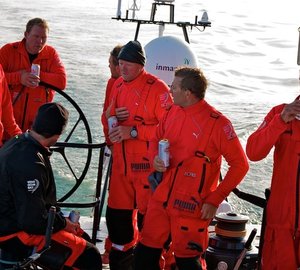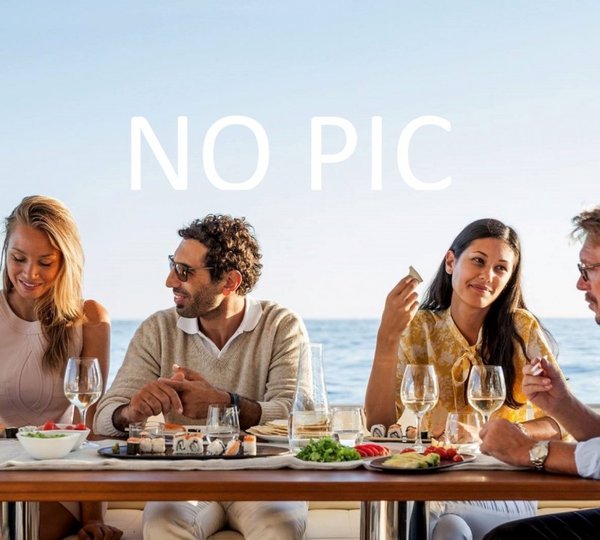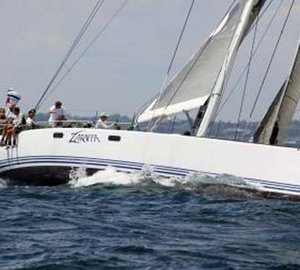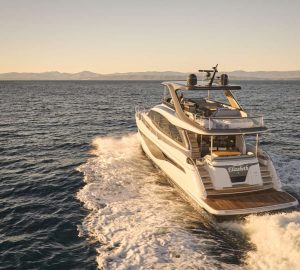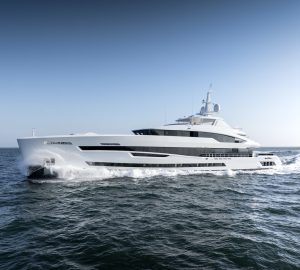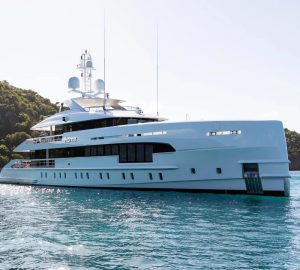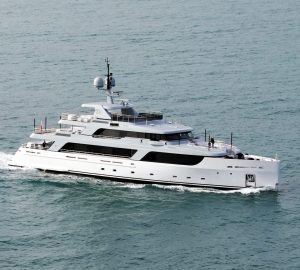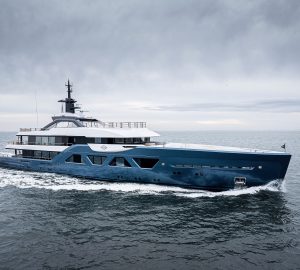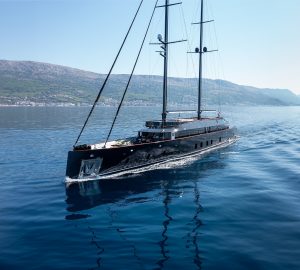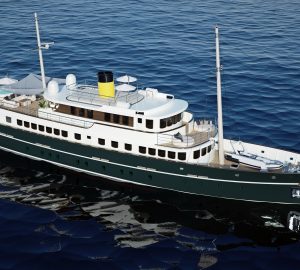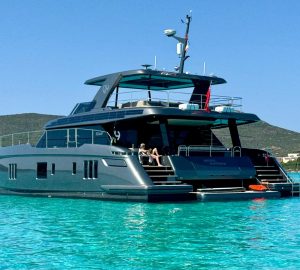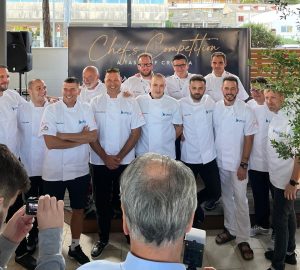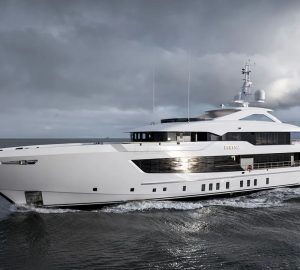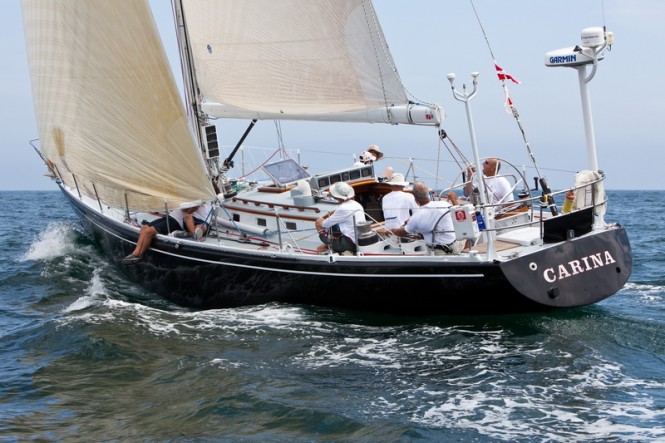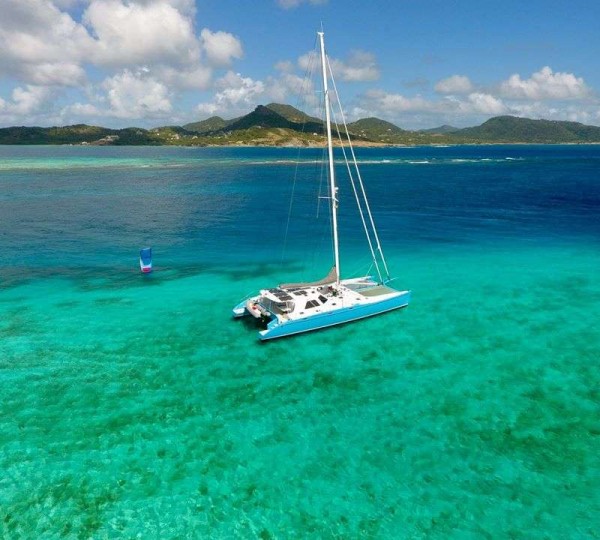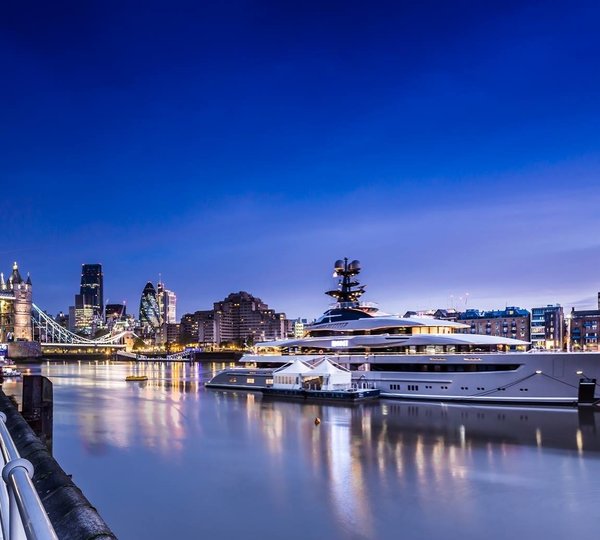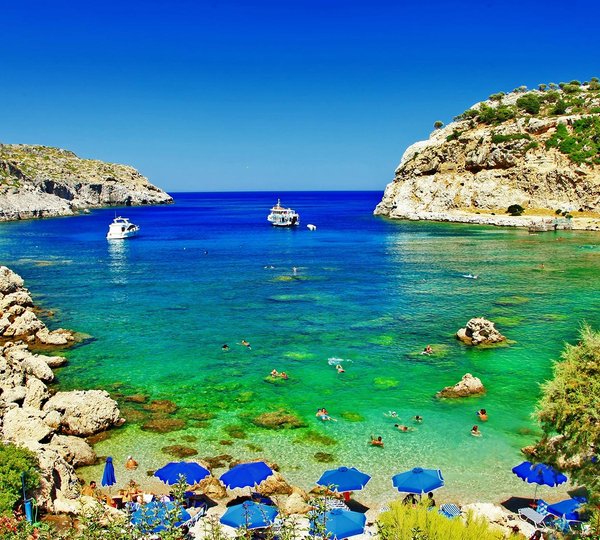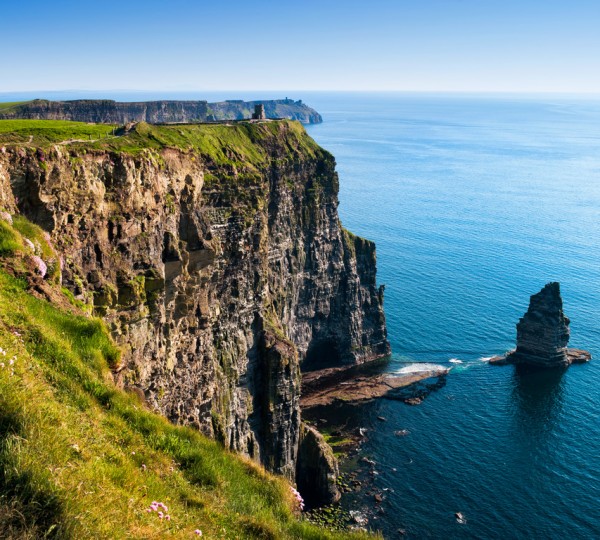Newport, R.I. USA (July 9, 2011) – For the last 24-hours of the Transatlantic Race 2011, light air has persisted for virtually the entire fleet — frustrating the progress of nearly every boat. Small gains in these conditions can be turned into massive advantages as finding breeze under a patch of cloud or during a rainsquall can deliver huge percentage gains and those few precious miles can mean getting into new breeze, hopefully hours before the opposition.
All of the yachts in the Transatlantic Race 2011 have access to detailed weather forecasts, and global weather models like NOAA’s GFS (National Oceanic and Atmospheric Administration’s Global Forecast System) are great tools for understanding the broad weather pattern. They run, however, at a resolution of 60km and are unlikely to pick up the local effects out in the Atlantic, especially as the fleet encounters land-produced effects. Weather forecasting may have been around for over 100 years, but a sailor’s experience is often more reliable than any computer models. A well-known yachting term, ‘head out of the boat’ is a very poignant factor right now. Finding breeze in these fickle conditions is golden.
Rambler 100, skippered by George David (Hartford, Conn.), looks to be the odds-on favorite for line honors and is expected to cross the finish line at The Lizard, on the south coast of England, around mid-day Sunday, July 10. PUMA Mar Mostro, skippered by Ken Read (Newport, R.I.) has taken a two percent time penalty allowing them to stack sails and is still currently leading IRC Class One on corrected time — although not the race overall.
Carina, the McCurdy and Rhodes 48 skippered by Rive Potts, Jr. (Essex, Conn.) which started the race on June 26 has that honor (current overall race leader). There will probably be a national holiday in the yacht’s hometown if they pull off a win against such esteemed opposition. Unfortunately, Carina was barely making any headway today and still has well over 700 miles to go. Potts and his crew will be praying for more wind and the team will be doing everything they can to find it. While looking to have a win in IRC Class Four sewn up, Carina only needs to average about five and a half knots to see them seriously challenge for the overall title.
In IRC Class Two, Jazz navigator Mike Broughton (Hamble, U.K.) reported via satellite phone this morning to say that they had found a fairly consistent breeze from the northwest and were making good headway. Jazz is a firm favorite for taking class honors and still has an outside chance of taking an overall victory after time correction.
“The boat is immaculately clean, something that the crew all pride themselves in,” said Broughton confirming that – apart from the diet — all is well onboard. “This morning we are enjoying some freeze-dried granola for breakfast, which is definitely our favorite energizer in the mornings. However, every other day we have freeze-dried scrambled egg and I have to say that once we get ashore, I will be happy not to see that particular delicacy for a very long time.”
In IRC Cass Three, Zaraffa, the Reichel Pugh 65 skippered by Huntington Sheldon (Shelburne, Vt.), has just over 500 miles to go, along with a virtually unassailable lead in its class. And in the Open Class, Phaedo, skippered by Lloyd Thornburg (St. Barths), has understandably enjoyed the lighter breeze, far more than its heavy weight opponent yacht Maltese Falcon. The Lamborghini orange Gunboat 66 has skipped away some 40 miles ahead of the Perini Navi.
While the end of the race is approaching for the front runners, spare a thought for Mike Hennessey (Mystic, Conn.) and Rob Windsor (East Northport, N.Y.), who are sailing the Class 40 Dragon double-handed and who updated their progress by satellite link.
“In the past 24 hours we have achieved three milestones: We reached the most remote point we will get to in this race: 825 miles to Cape Spear, Newfoundland, to the west and 825 miles to Great Skellig Island, Ireland, to the east and 700 miles to Kap Farvel, Greenland to the north. I have no idea if any of those places even have a port we could get into, but it’s nice to know where you would have to bail out to!
“We passed the 1000-mile mark, with 980 some odd miles to go to the finish. We have had our first upwind work of the entire race. Currently slapping our way through short chop on our way east, under gray and cold skies.”

